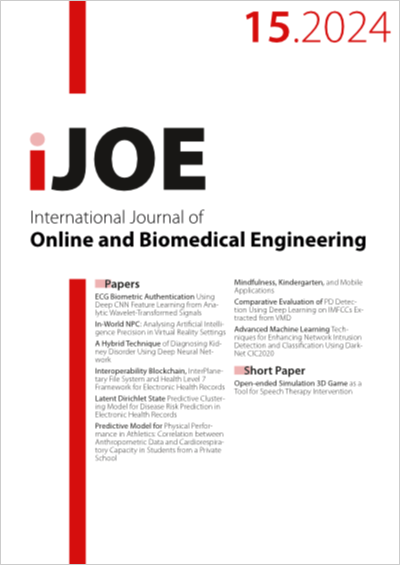In-World NPC: Analysing Artificial Intelligence Precision in Virtual Reality Settings
DOI:
https://doi.org/10.3991/ijoe.v20i15.51437Keywords:
AI accuracy, Non-Player Characters, Virtual Reality, NPC behaviour, VR scenariosAbstract
This study investigates the accuracy and performance of artificial intelligence (AI)-driven non-player characters (NPC) in a virtual classroom environment, focusing on an educational simulation scenario. By employing a mixed-methods approach that combines quantitative data from controlled experiments and qualitative insights from user feedback, the research aims to provide a comprehensive evaluation of NPC behavior. The findings indicate that NPC demonstrated a high decision-making accuracy rate of 87%, with solid behavioral consistency and generally fast response times averaging 1.2 seconds. However, challenges were noted in handling complex queries and maintaining consistency in dynamic scenarios. Factors influencing NPC performance included the complexity of user interactions, the environmental context, and the limitations of AI algorithms. Overall user satisfaction was high, with participants appreciating NPC realism, responsiveness, and engagement. A comparative analysis of AI techniques revealed that while rule-based systems were efficient and predictable, machine learning models offered superior adaptability and contextual understanding, albeit at the cost of higher computational demands. The study concludes that enhancing AI capabilities, optimising computational resources, and incorporating adaptive learning algorithms can improve NPC performance. These insights provide valuable guidance for future developments in AI-driven NPC, aiming to create more immersive and compelling virtual educational environments.
Downloads
Published
How to Cite
Issue
Section
License
Copyright (c) 2024 Arif Ainur RAFIQ, Mochamad Bruri Triyono, Didik Hariyanto, Dina Adinda, Maria Denami

This work is licensed under a Creative Commons Attribution 4.0 International License.



